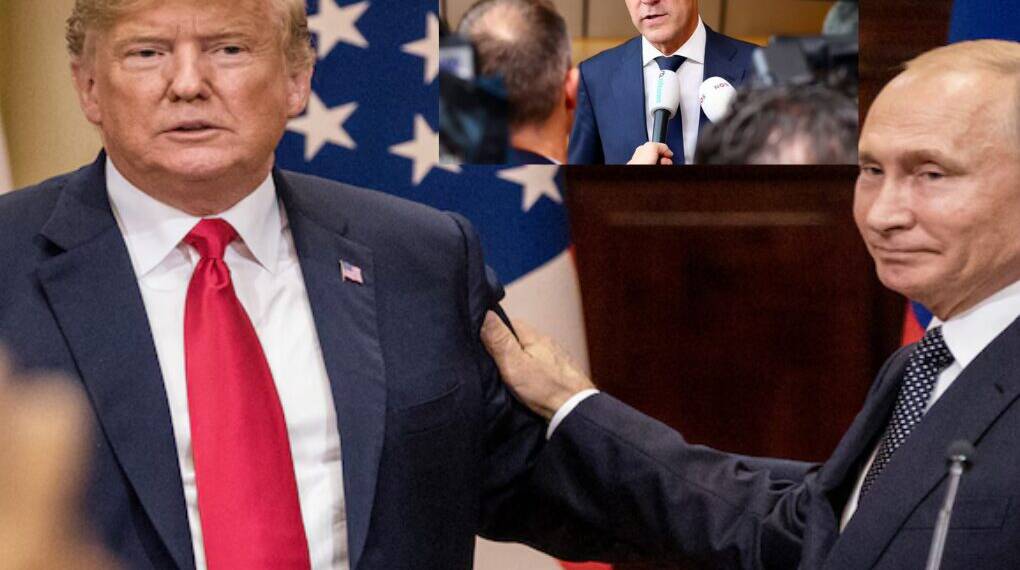On August 15, 2025, reports from Russian media, including a pro-Kremlin outlet, suggested that the United States might attempt to detain Russian President Vladimir Putin during a summit with U.S. President Donald Trump in Alaska.
Columnist Vyacheslav Novorossiysky labeled Putin as “Hostage Number 1,” framing the summit as a potential U.S. trap.
This piece of writing examines these claims, their context, and their implications. It also explores the hypothetical scenario of the U.S. arresting Putin, assessing its potential consequences.
The Russian Media Narrative
Russian media alleges that the U.S. could exploit the Alaska summit to take Putin into custody, portraying it as a strategic move to weaken Russia. The term “Hostage Number 1” emphasizes the high stakes, with warnings that such an action could be seen as an act of war, potentially triggering military or even nuclear retaliation.
The reports highlight Putin’s stringent security measures, including traveling with a nuclear briefcase and a bodyguard tasked with collecting his waste to prevent foreign analysis of his health. These claims reflect Russia’s broader narrative of Western hostility, particularly from the U.S.
Context of the Alaska Summit
The Alaska summit, intended to address U.S.-Russia tensions over issues like the Ukraine conflict, NATO, and global security, on August 15, 2025. Such meetings aim to foster dialogue, but the Russian media’s allegations cast a shadow over their feasibility.
The narrative may serve as a preemptive tactic to shape public perception or influence the summit’s outcome, portraying the U.S. as an untrustworthy actor. It also signals the trust between the West and Russia.
Assessing the Credibility
The claim that the U.S. plans to detain Putin lacks evidence from credible, independent sources. No Western or international outlets have corroborated the story, and the U.S. has not publicly responded to these allegations.
Historically, such sensational claims from Russian media often align with domestic propaganda efforts to rally support by depicting external threats. While Putin’s security concerns are well-documented, the idea of a U.S. plot to arrest him during a diplomatic summit appears speculative and diplomatically improbable, given the severe risks involved.
Russian Motives
The Russian media’s narrative may have several objectives:
Domestic Support: Framing Putin as a target of U.S. aggression reinforces a siege mentality, bolstering his domestic image as Russia’s indispensable leader.
Diplomatic Leverage: By casting doubt on the summit, Russia may seek to pressure the U.S. into concessions or to justify withdrawing from talks.
Geopolitical Posturing: Highlighting nuclear retaliation risks serves to remind the world of Russia’s military capabilities, escalating tensions to deter perceived threats.
U.S. Perspective
From the U.S. side, detaining a foreign leader like Putin would be unprecedented and highly risky, violating international norms and diplomatic immunity conventions.
Such an act would likely alienate allies, destabilize global markets, and invite severe retaliation. The U.S. has consistently pursued sanctions, diplomacy, and support for allies like Ukraine to counter Russian actions, making a provocative move like arresting Putin unlikely and counterproductive.
Hypothetical Scenario: What If the U.S. Arrests Putin?
While the likelihood of the U.S. arresting Putin is extremely low, exploring this hypothetical scenario reveals its far-reaching implications:
Immediate Consequences
Russian Retaliation: Russia could interpret Putin’s arrest as an act of war, potentially leading to military mobilization, cyberattacks, or escalation in ongoing conflicts like Ukraine. Russian media’s mention of nuclear retaliation, though extreme, underscores the risk of heightened tensions.
Diplomatic Fallout: The international community, including U.S. allies, would likely condemn the action as a breach of diplomatic norms, damaging U.S. credibility. Neutral nations might distance themselves, fearing escalation.
Domestic Impact in Russia: Putin’s detention could destabilize Russia’s political system, given his centralized control. A power vacuum might lead to internal chaos, with competing factions vying for leadership, or it could galvanize hardliners to rally against the West.
Long-Term Implications
Global Instability: An arrest would disrupt U.S.-Russia relations for years, potentially ending diplomatic channels and increasing the risk of direct conflict. Global markets, particularly energy and commodities, could face volatility due to Russia’s role as a major supplier.
Legal and Ethical Questions: The U.S. would need to justify the arrest under international law, possibly citing war crimes or sanctions violations. However, without a clear legal framework or international backing, the move could be seen as extrajudicial, undermining global trust in U.S. leadership.
Russian Response Options: Beyond military action, Russia might retaliate through asymmetric means, such as cyberattacks on U.S. infrastructure, intensified disinformation campaigns, or alliances with nations like China or Iran.
Why It’s Unlikely?
The U.S. has little to gain from such a high-risk action. Arresting Putin would not resolve ongoing conflicts like Ukraine, and the costs—diplomatic isolation, economic fallout, and military risks—far outweigh potential benefits. Diplomacy, sanctions, and international coalitions remain the U.S.’s preferred tools for addressing Russian actions.
Broader Implications for U.S.-Russia Relations
The “Hostage Number 1” narrative, even if unfounded, complicates U.S.-Russia diplomacy. It risks poisoning the Alaska summit, making trust-building harder. Both nations face challenges:
Russia: The Kremlin’s rhetoric may limit its diplomatic flexibility, as backing down could appear weak domestically.
U.S.: The U.S. must navigate these claims carefully, reaffirming its commitment to diplomacy while countering Russian propaganda without escalating tensions.
The narrative also reflects broader U.S.-Russia dynamics, marked by mistrust, competing interests, and the shadow of the Ukraine conflict. Any path forward requires careful de-escalation and transparent communication.
The Russian media’s claim that the U.S. plans to take Vladimir Putin hostage is a provocative but unsubstantiated allegation, likely driven by domestic and geopolitical motives. While it highlights the fragility of U.S.-Russia relations, the scenario of Putin’s arrest remains highly improbable due to its catastrophic risks.
The hypothetical consequences—ranging from military escalation to global instability—underscore the importance of diplomacy over sensationalism. As the Alaska summit approaches, both nations must prioritize dialogue to address tensions, rather than fueling narratives that deepen mistrust.








